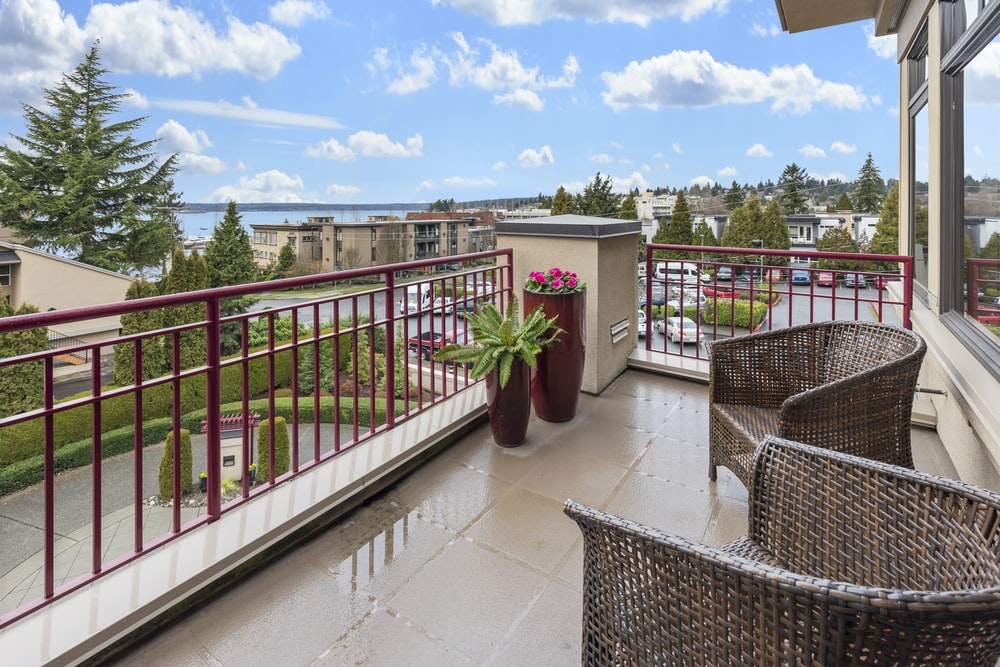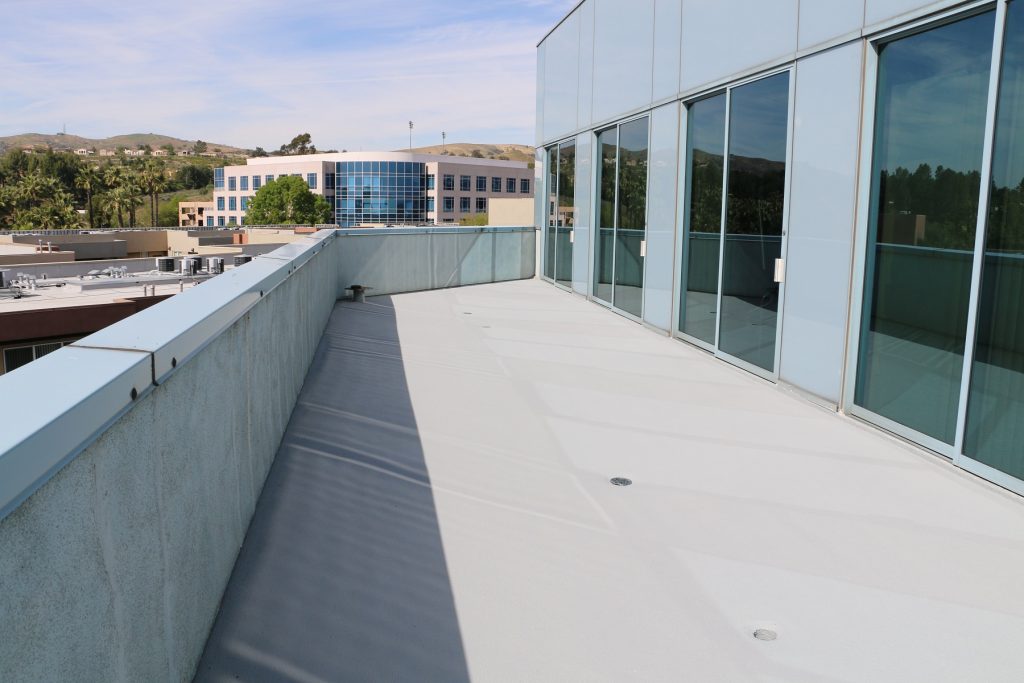How to Prevent Water Damage to Your Balcony

While having quick access to the outdoors is the primary benefit of a balcony, it’s also the greatest drawback: Rain, snow, and other weather can cause water damage to your balcony’s surfaces and structural components over time. Left unchecked, this damage can make your balcony unsafe to use—or, at the very least, unsightly to look at!
Thankfully, you can prevent water damage to your balcony with these simple tips.
Cover your balcony
Rain and weather will damage even the most well-built balconies. As a result, it’s a good idea to cover your balcony whenever possible, especially during storms.
There are many ways you can cover your balcony, some of which can even improve the aesthetics of your home. A small balcony covering or roof, for example, can help keep your balcony permanently dry. Otherwise, use a tarp or canvas to cover your balcony during rain or snowstorms.
Unfortunately, even the most well-covered balconies will get wet from time to time. In these cases, modern materials and waterproofing are essential.
Use modern decking materials
Many new balconies and decks are built from modern materials capable of withstanding water and other types of damage. These ultra-durable materials are quickly replacing traditional balconies made form rot-prone wood or corrosive metals.
Even though modern decking can be more expensive than traditional materials, the long-term benefits (and savings) tend to outweigh the initial cost; instead of having to replace a wood deck every 20 years, for example, a deck made from modern materials can last a lifetime.
While many types of modern decking are somewhat waterproof, they’re sometimes fastened using non-waterproof fittings. In any case, surface waterproofing is highly recommended for any decking material.
Invest in balcony waterproofing

No matter how well you cover it, your balcony is bound to get wet at some point—and no material’s completely impervious to water! As a result, balcony waterproofing is essential for any balcony, whether new, old, or covered.
Balcony waterproofing isn’t just essential for long-term durability: It’s also essential for safety. Wet balconies are often slippery, making them potentially dangerous for foot traffic. Waterproofing can also help prevent splinters, rot, rust, and corrosion caused by long-term water damage to wood or metal decks.
Another benefit of balcony waterproofing is its flexibility. With most waterproofing solutions working for almost any combination of materials and surfaces, waterproofing is one of the most effective ways of protecting and prolonging the life of your balcony.
Perform regular maintenance
Regular maintenance and cleaning can help prevent many effects of water damage before they can become major problems. In addition to regular cleaning, be sure to check for and repair any areas with rot, rust, or corrosion—especially during wetter months of the year.
You may also want to refinish or recoat your balcony regularly depending on the strength and durability of its materials. Wood balconies will typically need to be refinished at least every decade, while many synthetic materials may never need refinishing.
You may also want to waterproof your deck at regular intervals, especially if your waterproofing treatment has begun to wear down. Keeping your balcony floor waterproof can also make cleaning and other maintenance much easier by creating an easy-to-clean surface.
Find the right balcony waterproofing contractor
No matter what type of balcony you have, balcony deck waterproofing is the best way to protect your investment from water damage. For the best results, be sure to hire a trusted waterproofing professional.
For more information on our balcony and deck waterproofing services, call our team at (888) 508-2966.
RECENT POSTS
categories
- Uncategorized
- Waterproofing
- Stair Tread Replacement
- FAQ
- Balconies
- Precast Iron Stairs
- Outdoor Stairs
- Leisure Deck
- Deck Resurfacing
- Pool Decks
- Deck Maintenance
- Deck Staining
- Deck Materials
- Nonslip Deck Coatings
- Fiberglass Stairs
- Gardening
- Deck Repair
- Patio Waterpoofing
- Commercial waterproofing
- Concrete Waterproofing
